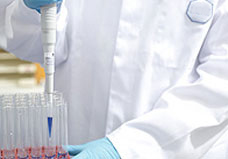| |
 |
|
|
|
|
|
|
Premenstrual Syndrome (PMS) |
|
|
What is
Premenstrual Syndrome
Premenstrual syndrome (PMS) is a combination of
physical and emotional disturbances that occur after a woman
ovulates and ends with menstruation. Common PMS symptoms include
depression, irritability, crying, oversensitivity, and mood
swings. For some women PMS symptoms can be controlled with
medications and lifestyle changes such as exercise, nutrition, and
a family and friend support system.
is a combination of emotional, physical, psychological, and mood
disturbances that occur after a woman's ovulation and typically
ending with the onset of her menstrual flow. The most common
mood-related symptoms are irritability, depression, crying,
oversensitivity, and mood swings with alternating sadness and
anger. The most common physical symptoms are fatigue, bloating,
breast tenderness (mastalgia), acne, and appetite changes with
food cravings.
A more severe form of PMS, known as premenstrual dysphoric
disorder (PMDD), also known as late luteal phase dysphoric
disorder) occurs in a smaller number of women and leads to
significant loss of function because of unusually severe symptoms.
What causes PMS?
PMS remains an enigma because of the wide-ranging symptoms and the
difficulty in making a firm diagnosis. Several theories have been
advanced to explain the cause of PMS. None of these theories have
been proven, and specific treatment for PMS still largely lacks a
solid scientific basis. Most evidence suggests that PMS results
from the alterations in or interactions between the levels of sex
hormones and brain chemicals known as neurotransmitters.
PMS does not appear to be specifically associated with any
personality factors or specific personality types. Likewise, a
number of studies have shown that psychological stress is not
related to the severity of PMS.
What treatments are
available for PMS?
The treatment of PMS can sometimes be as challenging as making the
diagnosis of PMS. Various treatment approaches have been used to
treat this condition. Some measures lack a solid scientific basis
but seem to help some women. Other treatments with a sound
scientific basis may not help all patients.
General management includes a healthy lifestyle including:
- exercise;
- family and friends can provide emotional
support during the time of a woman's cycle;
- avoid salt before the menstrual period;
- reduce caffeine intake;
- quite smoking;
- reduce alcohol intake; and
- reduce intake of refined sugars.
All of the above have been recommended and may help symptoms in
some women. Furthermore, some studies suggest that vitamin B6,
vitamin E, calcium, and magnesium supplements may have some
benefit.
|
|
|
|
Premenstrual Syndrome - treatment of
Premenstrual Syndrome, Premenstrual Syndrome types, Disease medicines,
Premenstrual Syndrome symptoms, Premenstrual Syndrome and Disease symptoms,
Premenstrual Syndrome symptoms Disease and diagnosis, Symptoms and
Solutions, Signs and Symptoms, type of Premenstrual Syndrome, cause common,
common Premenstrual Syndrome, Premenstrual Syndrome List, causes list,
Infectious Premenstrual Syndrome, Causes, Diseases , Types, Prevention,
Treatment and Facts, Premenstrual Syndrome information, Premenstrual
Syndrome: Definition, Premenstrual Syndrome names, medical Premenstrual
Syndrome, medical Premenstrual Syndrome and disorders, cell Premenstrual
Syndrome, Premenstrual Syndrome Worldwide, Premenstrual Syndrome Research,
Premenstrual Syndrome Control, Premenstrual Syndrome Center, Digestive
Premenstrual Syndrome Week, Information about Premenstrual Syndrome, causes
of different Premenstrual Syndrome, Premenstrual Syndrome Articles,
Premenstrual Syndrome and conditions, Health and Premenstrual Syndrome,
Premenstrual Syndrome Patients, Premenstrual Syndrome and Sciences, causes
of alzheimer's Premenstrual Syndrome, Premenstrual Syndrome causes,
alternative medicine heart Premenstrual Syndrome, body ailments,
Premenstrual Syndrome medicines, medical antiques, type of blood
Premenstrual Syndrome |
|
|





